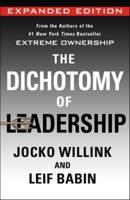Publisher's Synopsis
Artificial Management (AI) optimizes Human Resource Management (HRM) and performance in the organizational work environment.
Integration of AI in the workplace automates tasks to minimize human workload, analyzes big data to offer insights for strategic decision-making, facilitates personalized employee engagement, and offers real-time communication through chatbots and virtual assistants.
AI facilitates work performance through task scheduling, automates performance monitoring and evaluation processes, and supports employee satisfaction and wellness.
The Applicant Tracking System (ATS) is an AI-driven hiring process that enables the organization to access top talent to spur productivity in the workplace.
AI applies Machine Learning (ML) and Natural Language Processing (NLP) for sentiment and predictive analysis.
Sentiment analysis enables the company management to understand employee motivation levels and initiate strategies for improving staff performance and loyalty.
Predictive analysis allows organizational leadership to forecast employee management and performance issues, such as staff turnover and productivity trends, and proactively adopt strategies that enhance competitive edge in the industry.
Effective AI - Human collaboration ensures the appropriate and valuable balance between employee decision-making, AI automation, and team performance.
AI improves efficiency and effectiveness in the work performance environment, and organizations should address issues on ethics, fairness, automation, and workforce adaptation and resilience to optimally benefit from AI potential.







